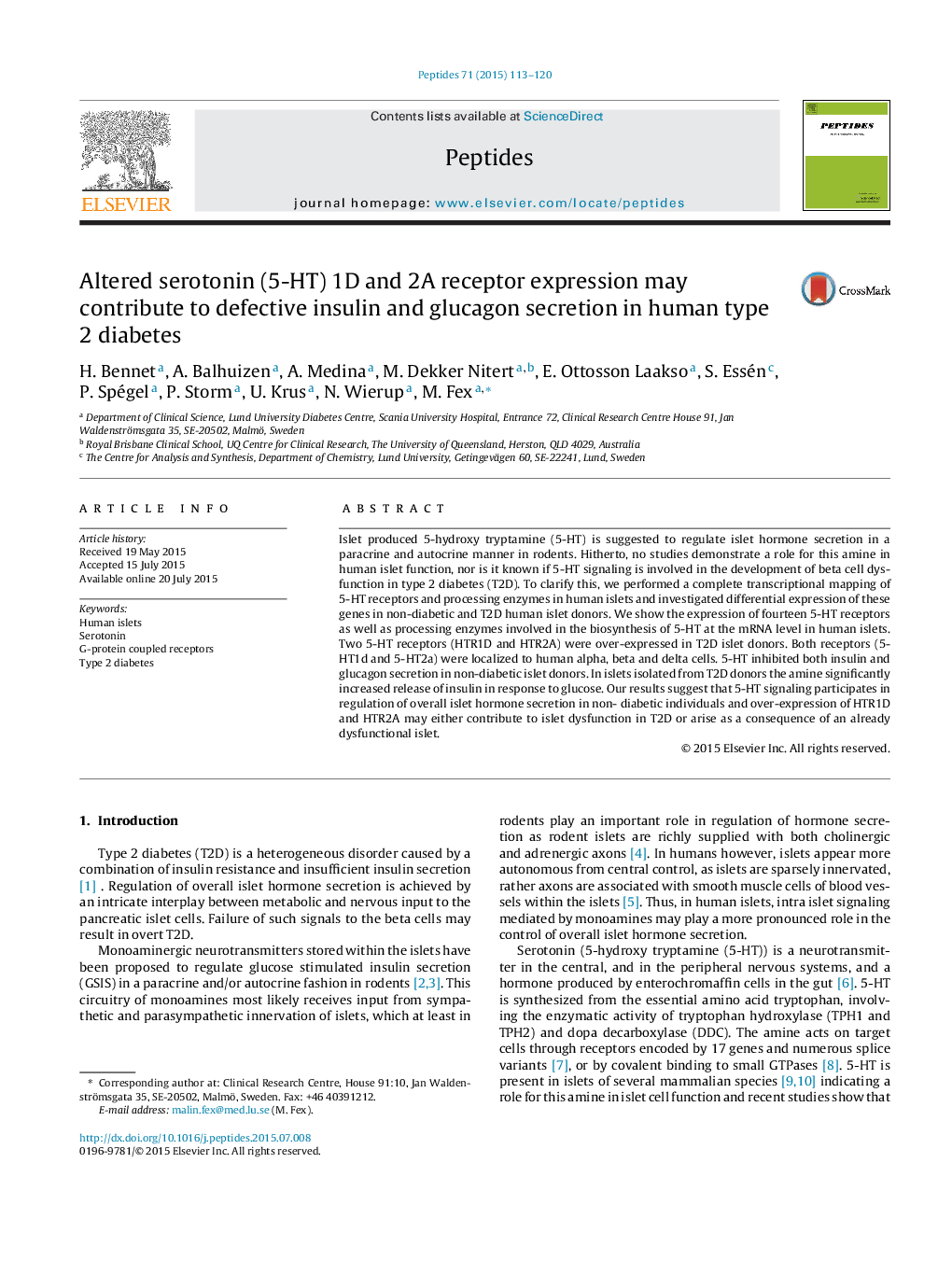| Article ID | Journal | Published Year | Pages | File Type |
|---|---|---|---|---|
| 8347923 | Peptides | 2015 | 8 Pages |
Abstract
Islet produced 5-hydroxy tryptamine (5-HT) is suggested to regulate islet hormone secretion in a paracrine and autocrine manner in rodents. Hitherto, no studies demonstrate a role for this amine in human islet function, nor is it known if 5-HT signaling is involved in the development of beta cell dysfunction in type 2 diabetes (T2D). To clarify this, we performed a complete transcriptional mapping of 5-HT receptors and processing enzymes in human islets and investigated differential expression of these genes in non-diabetic and T2D human islet donors. We show the expression of fourteen 5-HT receptors as well as processing enzymes involved in the biosynthesis of 5-HT at the mRNA level in human islets. Two 5-HT receptors (HTR1D and HTR2A) were over-expressed in T2D islet donors. Both receptors (5-HT1d and 5-HT2a) were localized to human alpha, beta and delta cells. 5-HT inhibited both insulin and glucagon secretion in non-diabetic islet donors. In islets isolated from T2D donors the amine significantly increased release of insulin in response to glucose. Our results suggest that 5-HT signaling participates in regulation of overall islet hormone secretion in non- diabetic individuals and over-expression of HTR1D and HTR2A may either contribute to islet dysfunction in T2D or arise as a consequence of an already dysfunctional islet.
Related Topics
Life Sciences
Biochemistry, Genetics and Molecular Biology
Biochemistry
Authors
H. Bennet, A. Balhuizen, A. Medina, M. Dekker Nitert, E. Ottosson Laakso, S. Essén, P. Spégel, P. Storm, U. Krus, N. Wierup, M. Fex,
